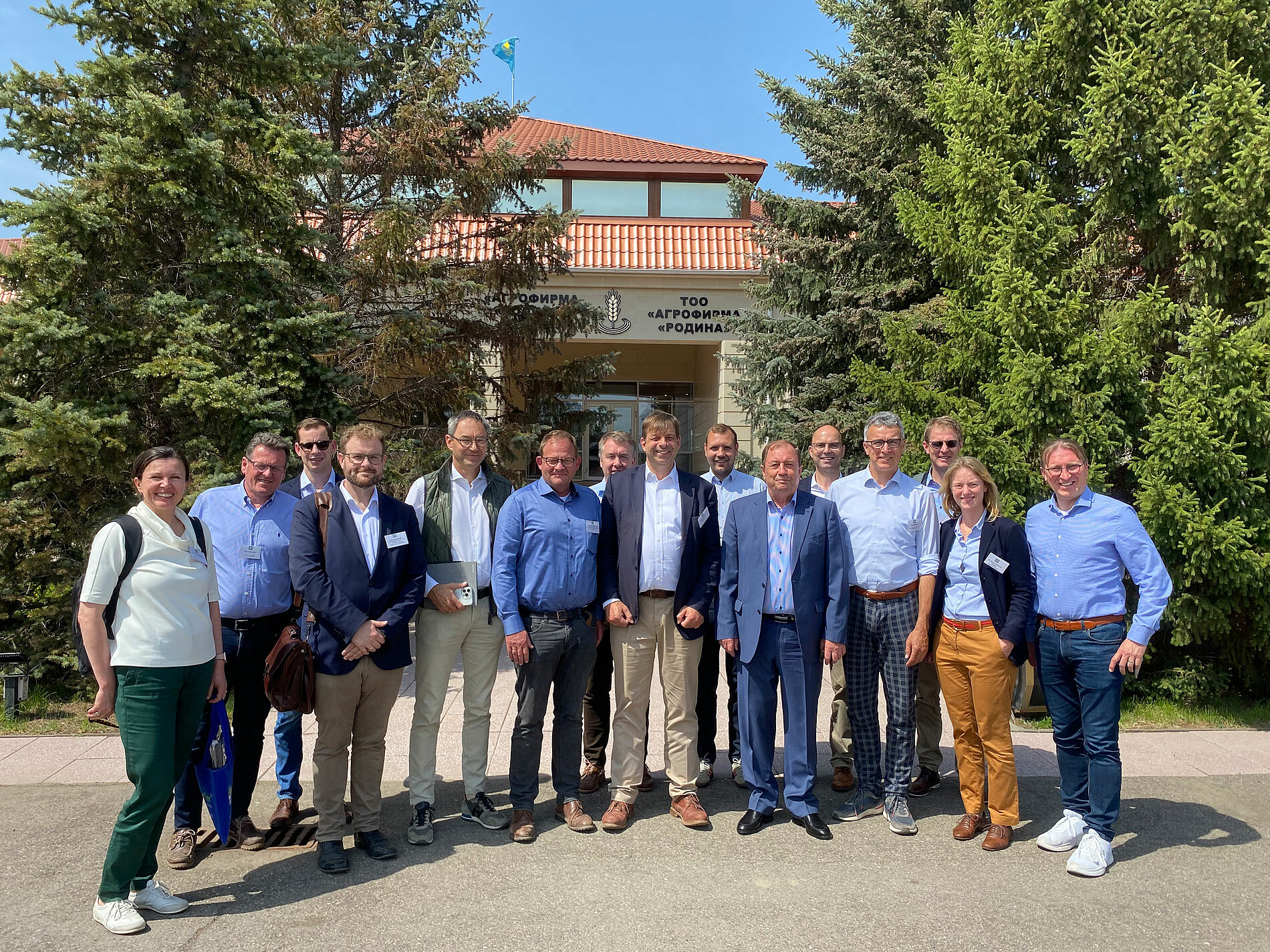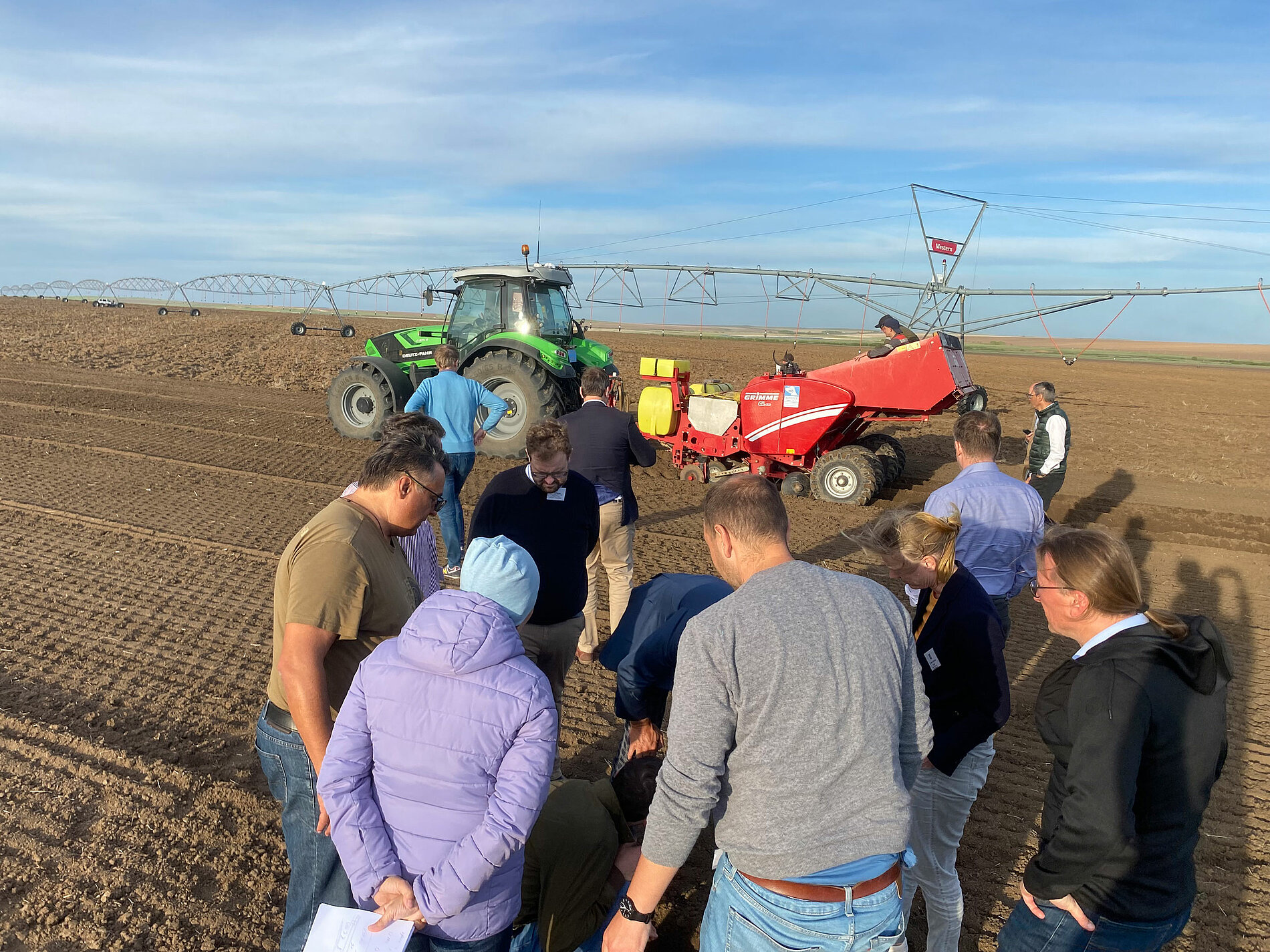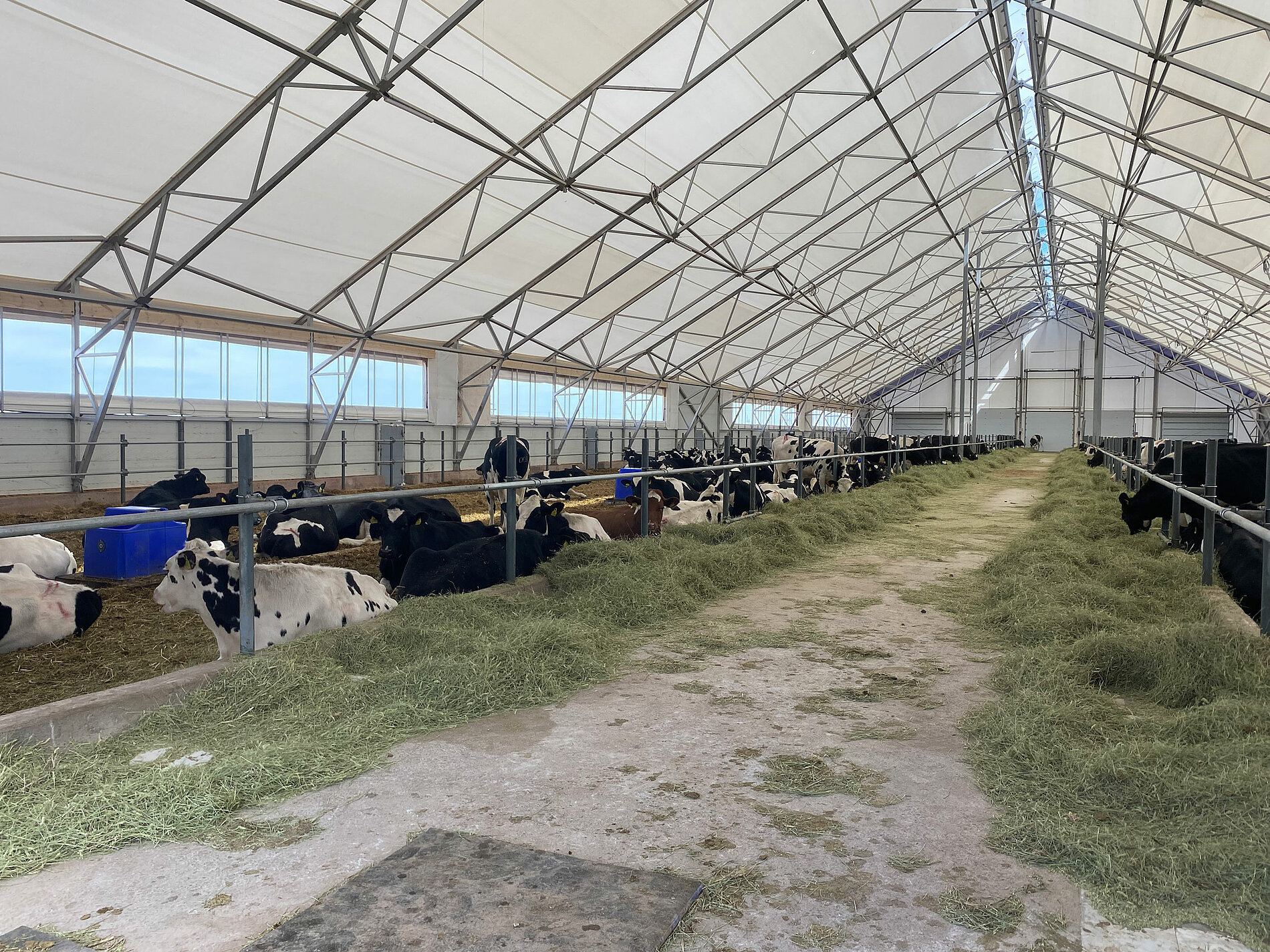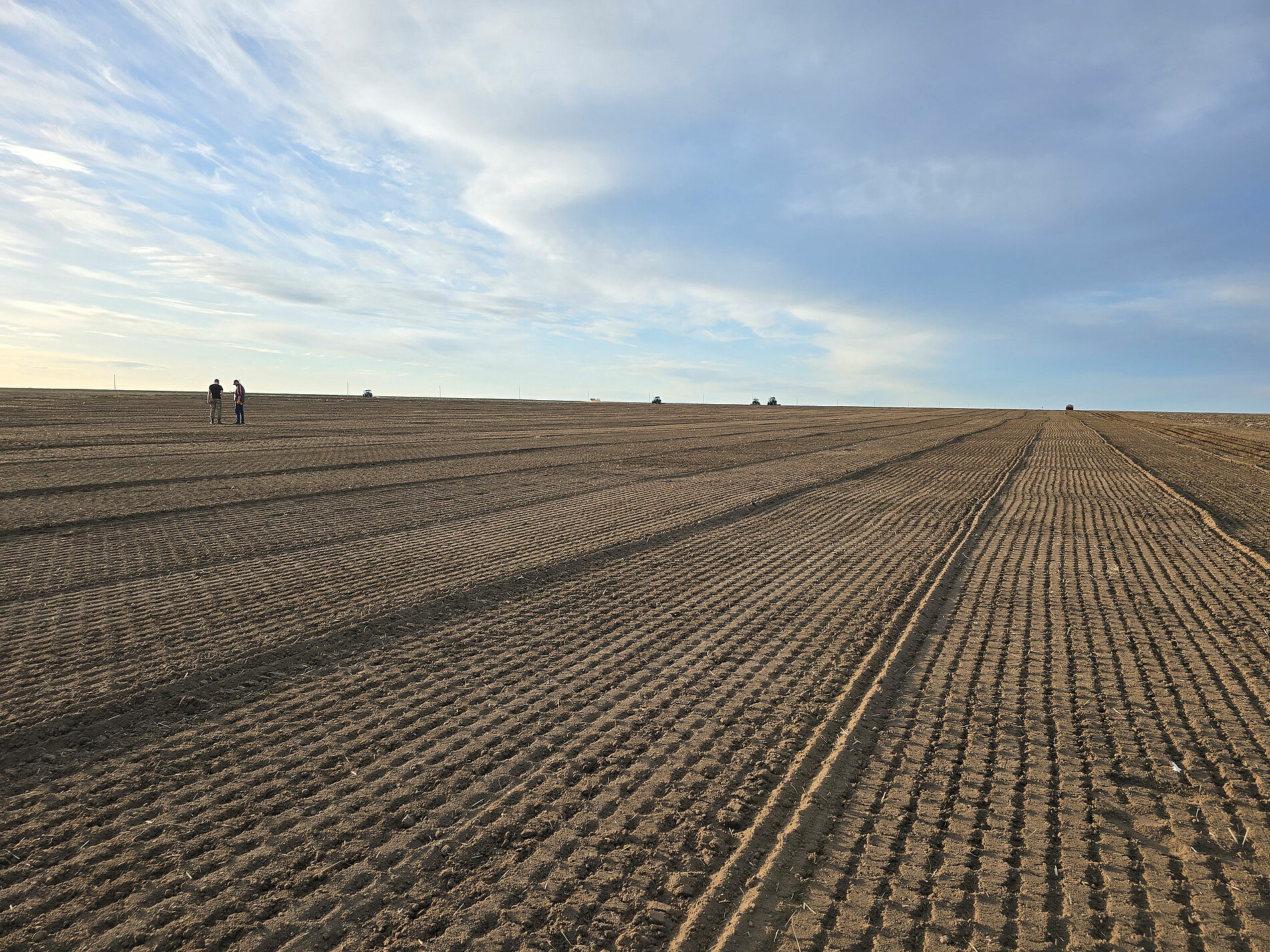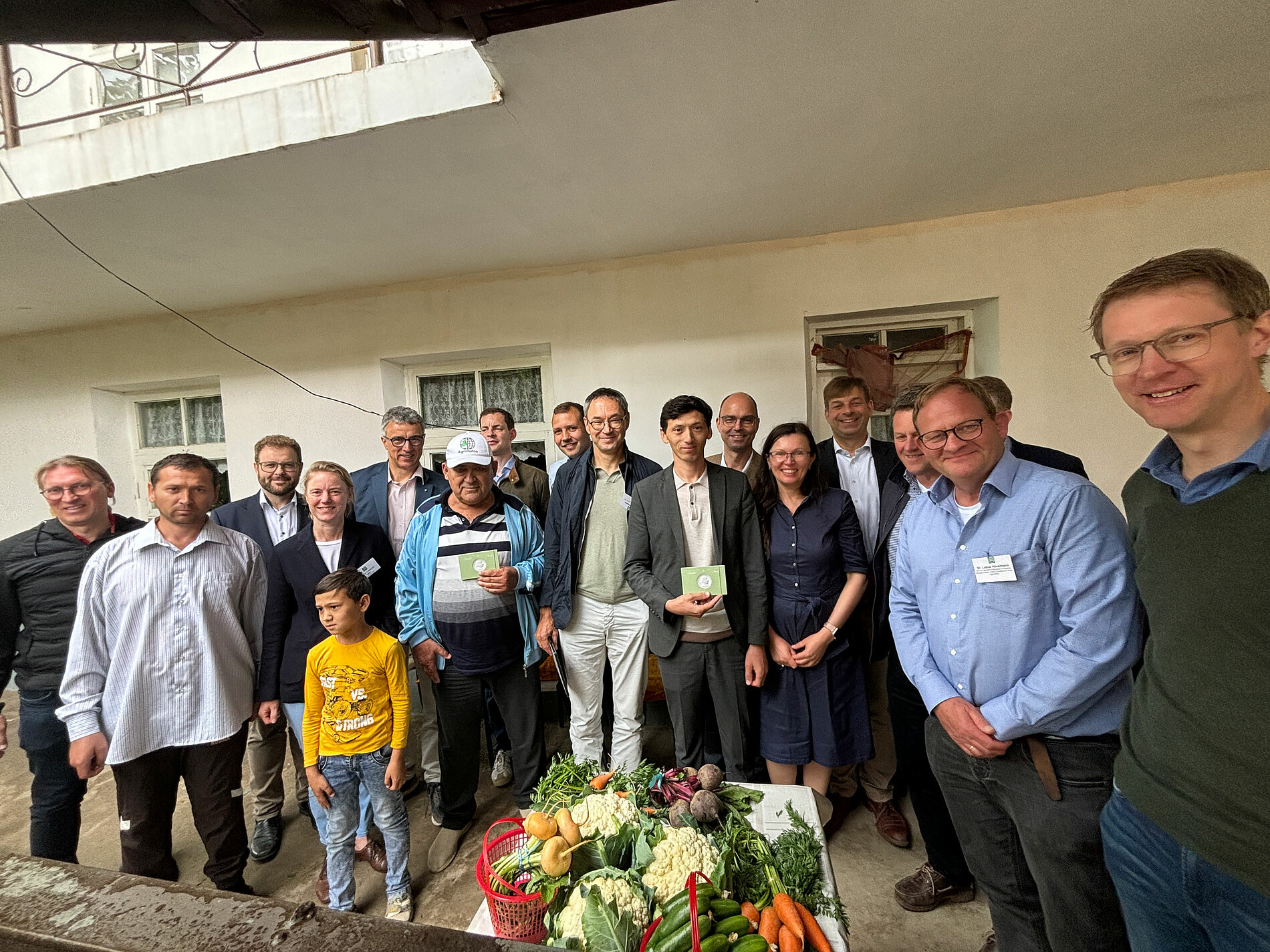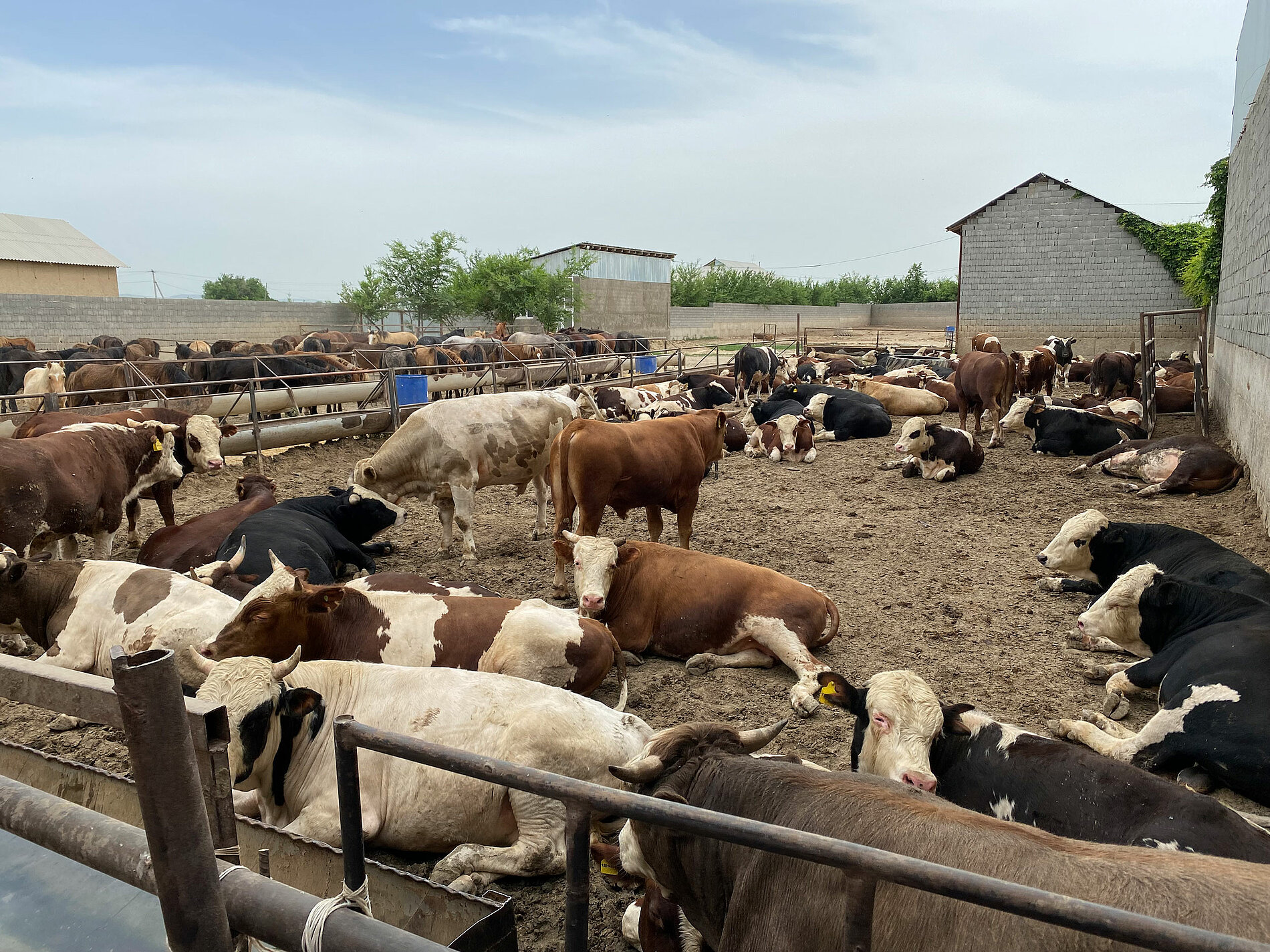Agriculture at the limit - Study trip to Kazakhstan / Uzbekistan
The DLG Committee for Farm Management visited Central Asia in Kazakhstan and Uzbekistan as part of its annual study trip. The aim of the study tour was to gain insights into adaptation strategies in agriculture in the area of conflict between climate change and disrupted supply chains and to promote the mutual transfer of knowledge between practitioners.
The pragmatism of extensive cash crop production and the importance of entrepreneurial business concepts in irrigation concepts, horse and cattle fattening farms and small-scale subsistence farming were impressive. In addition to the influences of extreme weather conditions with extremely cold winters (minus 50 degrees Celsius) and hot, dry summers (plus 45 degrees Celsius), the respective production costs on the farms were discussed in depth. The average wheat yield in northern Kazakhstan is around 1.2 -1.9 tons/ha and is established with production costs of around €200/ha. Due to the large farm structures, arable farming can be successful even with small margins. However, the main challenges lie in short cultivation windows due to the weather, water management and disrupted supply chains for the purchase of inputs and export routes due to the remote location.
Another focus of the trip was to analyse milk production in more detail. The enormous range of farm structures was striking here. For example, farms with over 2,000 dairy cows and an output of over 12,500 kg of milk per cow were visited, as well as smallholder structures with one dairy cow for self-sufficiency. The main challenge here remains feed management, as basic feed production can be adapted to the specific climatic conditions. Structures with production costs of around 40 cents were analysed from a business management perspective, which can market their milk at 50-60 cents/kg milk depending on the marketing form.
In general, the framework conditions for agriculture are special compared to Europe. The land is predominantly in state hands, which is transferred to the farmers for cultivation in the form of a leasehold of approx. 49 years. There are also state subsidies, e.g. for interest subsidies for investments, as the regular interest costs would otherwise be between 18-25% (2-3% possible after subsidisation). Furthermore, land is not a scarce commodity, especially in northern Kazakhstan, but the challenges lie in organising peak workloads and extreme weather conditions. In addition, spare parts deliveries can sometimes take 6-9 months due to geopolitical sanctions against Russia (customs union with Kazakhstan/Uzbekistan), which makes production even more difficult.
To summarise, it was possible to gain an interesting insight into the agricultural challenges in Central Asia and get to know interesting business personalities. The challenges of supply chains and climate change are particularly pronounced and require skilful action on the farm in order to keep an eye on production costs with extensive yields.

